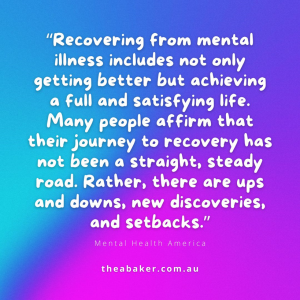Mental health myths
Mental health myths
One of the biggest reasons I do the work that I do, and in the way that I do it, is because I feel so strongly about the taboos and myths that surround mental health. I’m highly motivated to restore some of the balance and inequity around the way that mental health is explored, managed, and treated as compared to physical health. Ultimately, I believe that we are, by our human nature, WHOLE and our health should be considered through that lens too!
I thought I’d spend this week looking at some of the myths around mental health and explaining how we might look at this a little differently:
- Mental health problems are uncommon
Even before the global pandemic this one wasn’t founded in fact, and today it’s even more untrue. In 2001, the World Health Organization (WHO) estimated that 1 in 4 people would be affected by mental health or neurological disorders at some point in their lives. At present, almost 450 million people are experiencing mental health disorders and depression is one of the leading causes of ill health globally.
- People with mental health disorders cannot work
Just SO untrue! Sometimes, when people are really struggling with their mental health it might require some time off work, or maybe some adjustments like switching from full to part time work…but this is also true of physical health challenges. The majority of people with poor mental health or clinical mental health diagnoses can be every bit as productive as individuals without mental health disorders.
- Mental health problems are permanent
Not everyone’s experience of mental health disorders is lifelong – we are all different and so it makes sense that we might all have a different experience of poor mental health. For some that may mean bouts or episodes of acute mental health issues and in between they may return to their own version of what ‘normal’ is for them. For others it may feel like a longer and more complicated journey – medication and different therapeutic interventions might prove helpful. For some a hospital stay or some form of respite or rehabilitation may be part of the plan. The key thing is that everyone’s mental health can be improved to a greater or lesser extent with the right therapies and the right therapist(s) for each individual!
- Mental health problems are a sign of weakness
This is no more true than suggesting that a broken leg is a sign of weakness! Mental health is never a sign of poor character. Likewise, people struggling with their mental health can’t just ‘get over it’ any more than you could immediately recover from asthma or diabetes! In fact, I would argue that conversely, much like other chronic ill health conditions, people with mental health conditions are really very strong to navigate all the challenges that come along for the ride!
- Only people without friends need a therapist
Um, no! There’s a big difference between the experience of talking to a qualified, registered therapist and sharing with friends. Both can support us when our mental health is poor, but in very different ways. There are different types (modalities) of therapy that are better suited to some mental health conditions than others – for example EMDR is one of the most effective and efficient ways to treat PTSD – and it’s really important to make sure that your therapist is trained in the modality that you’re wanting to work with, or that best supports where your mental health is at. Remember too, that not everyone finds it easy to be open with their friends and family and also, it’s hard for our friends to be objective. Therapy should be confidential, safe, objective and entirely client-led space to explore whatever is needed and this isn’t usually how friendships work. Good friends are good. So are good therapists. Just different.
If you’d like to explore your feelings and would like a safe space to talk about how your mental health, please get in touch with us: www.theabaker.com.au / hello@theabaker.com.au / 03 9077 8194.

